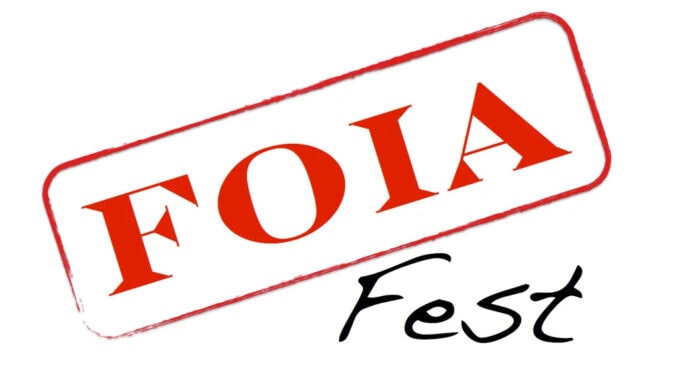
By Rylee Tan
Because the COVID-19 pandemic has thrown much of the economic world into chaos, coverage of workers, the workplace and all aspects of labor have been thrust to the front pages.
Four panelists from the Chicago Headline Club’s FOIAFest 2021 — moderated by Chalkbeat Chicago reporter Yana Kunichoff — talked Saturday about ways they’ve used the Freedom of Information Act (FOIA) to help them cover an often-underappreciated population.
One of the first things labor reporters face is settling on and developing a story because of the sheer volume of pressing issues.
FOIA can help in some surprising ways.
Take the story of panelist Melissa Sanchez, a ProPublica Illinois reporter who writes about immigrants and labor in the Midwest.
Tangled up in a FOIA request for five years’ worth of ambulance and police visits to a single Chicago factory was one report of a 15-year-old worker who passed out while on the job. What followed was evidence of instances where more than a dozen other immigrant teens collapsed, while trying to go to school by day and working in the factories by night.
When reporting on labor, sometimes data is imperfect or even nonexistent, meaning journalists sometimes have to change their approaches to complete a story.
“Federal data can often be really poor,” said Rachel Cohen, a freelance journalist based in Washington D.C. who covers labor, education and politics. “Sometimes the strongest thing we can do is prove data isn’t available.”
Panelist Adam Rhodes, a reporting fellow at the Chicago Reader, said on-the-ground reporting is important when covering labor issues. Screenshots, social media posts and other non-traditional documentation are some things to expect.
Covering labor often means covering marginalized populations, and the panelists gave advice on how to navigate telling the stories about some of society’s most vulnerable populations.
Andres Cediel, a documentary filmmaker and visual journalism professor, said reporters need to make sure sources have informed consent before they can participate in interviews because the power dynamic between reporter and source can be extreme.
Sanchez said reporters can’t go into stories with assumptions and should let sources have autonomy when decisions can directly affect them.
Rhodes said sometimes a reporter’s identities can be used to enhance reporting, as well.
“We’re told to take ourselves out of the story, but my humanity and my identities are the strongest skills in my arsenal,” Rhodes said.

